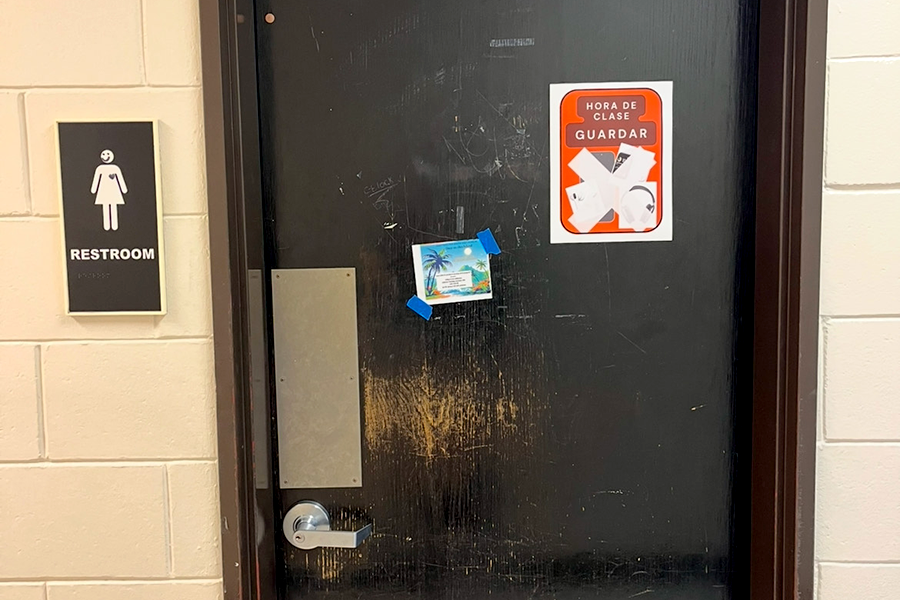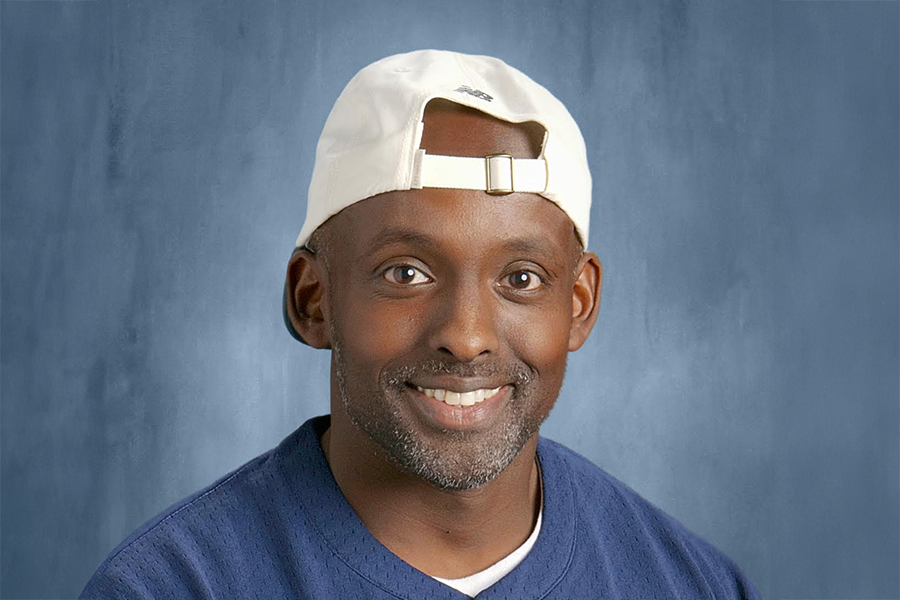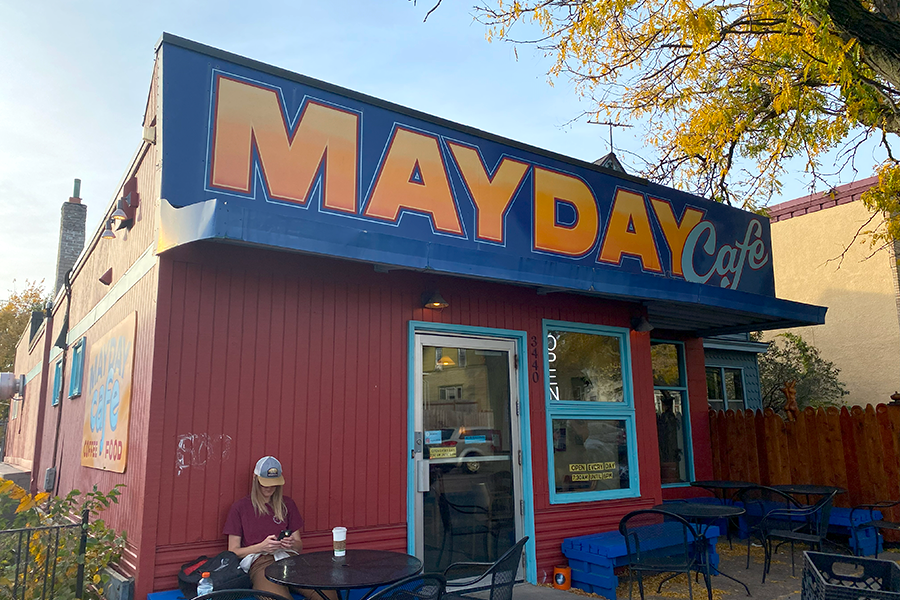One of the largest organizations at South, National Honor Society (NHS), counts eighty students among its members, twelve of whom are part of the executive board including the president and vice president. South High School students may associate NHS with acting as sheriffs at the Sadie Hawkins dance or collecting the recycling during class time throughout the week.
For some students, these may be the only things they identify with NHS. South student Ashley Schilling said, “Honestly I don’t know what [NHS] does besides recycling.” But NHS members and advisers feel that they are very active within the South Community.
“We work with the TAPPP program, we work with seniors in the community, we work the open houses, NHS is involved in every part of the community in some aspect.” said NHS advisor Arthur French. Co-advisor Tanya Hodge agreed adding, “All staff members will call on them when they need something. It’s the smaller things that the students don’t see.”
Hodge also noted that NHS has given grants to the archery club, the art department, and Jeff Ponto’s biology class. “The money that [NHS] makes is always to give back” said Hodge.
Besides perceptions about the organization’s lack of activity, students have other complaints about NHS. Schilling, who applied to NHS last year but was rejected, doesn’t think that NHS members always represent what the organization claims to stand for. Schilling has a 3.98 GPA, has been on the gymnastics team and the Nordic ski team and also worked in Nicaragua for a non-profit organization. Schilling’s rejection letter said that she had been declined based on her “character,” a reason that she feels is illegitimate. “I looked at it as they didn’t really have a reason to not let me in besides they had too many people applying” said Schilling.
Hodge admits that character is hard for NHS to judge, especially when it is based purely on a written application. Each application is read by several members of the faculty, who then judge the application by the four pillars of NHS: character, scholarship, leadership, and tutoring.
“Character is based on everything else, so everything is intertwined,” explained Hodge “so that person is looking at all of those pieces and defining character.”
Hodge notes that NHS members and advisers cannot see the applications; she feels that this is the best way to fairly select members.
“They use their discretion if they know the student,” said Hodge, who hopes that this can help to know the student past the application. “We’ve tried in the past to even get an engineer or someone who works in the kitchen [to read the applications] because they see them in the wider sphere,” said Hodge. “They see a lot of these kids and know how are they acting.”
“[The executive board] does not control who gets into NHS. It is not a clique or a club,” said French, “it’s an equal opportunity organization.
Junior Maeve Whalen received a similar rejection letter which she also interpreted to be based on a lack of character. Whalen has a 3.76 GPA, takes several Advanced Placement classes, as well as participating in two varsity sports.
“I thought it would be a good plan to help put [more] stuff on my transcripts for colleges,” Whalen said about her reasons for wanting to join NHS. Whalen said that she felt being a member of NHS would allow her to “get a leg up.”
Despite their previous desire to be members of NHS, neither Whalen or Schilling feel that they have missed out on a positive experience.
“Currently I don’t really care that I didn’t get in because I do PSEO now and with doing two sports in the winter, two PSEO classes, three classes here, and an online class I don’t really have time for NHS,” said Schilling. “And I look perfectly fine for colleges without it.”
“It would be cool to be in it but I don’t really care,” explained Whalen. However, Whalen did not understand some of the decisions that NHS made regarding who they did accept.
“There were some people I was surprised got accepted and I didn’t,” Whalen explained “just because they don’t seem to be as involved or as scholarly as I am.”
Schilling agreed, saying “Going to school I know the other kids that got in and some of them aren’t necessarily the most- they’re not the best students necessarily and maybe not the most honorable people” She also doesn’t think NHS always uphold its reputation, “I’ve heard from anonymous people in NHS that [NHS] is kind of a waste of their time”.
Shonti Smith, a senior, and president of NHS acknowledges that there may be a lack of spirit within the organization this year. “This year, it’s a little different, it’s more so, ‘Oh, I did recycling so I’m fine,’ and not the ‘Oh, I need to tutor. I need to go do something else,’” said Smith.
NHS member Sage Berglund, a junior, feels that requiring hours may contribute to this lack of spirit in NHS. “I feel like the fact that it’s mandatory does make it all about the hours and not the work you’re doing. It turns into a chore rather than something that you do to be good for your community,” said Berglund.
This year NHS changed its service requirements from one hour in three sections- environmental, community service, and tutoring- to two hours in community service and one hour in tutoring.
Said Hodge, “It didn’t really change technically. We used to have community service, environmental, and tutoring and we just combined the community service and environmental so you could shovel, you could rake, you could do recycling…you had more options but you had two hours of community service.”
To fill her community service requirements Berglund does a variety of things but mainly does recycling. “It’s just really easy to do during the day, you don’t have to schedule anything and also they log those hours for you so you don’t have to log them yourself,” said Berglund.
Junior Luke Riveness, another NHS member, doesn’t think that doing recycling should be where NHS members get most of their hours. “If I just always did recycling, then it’d just always be the easy way,” said Riveness, who works at his church’s day care to meet his hours requirement. “And I have fun when I work with the little kids.”
Other issues follow recycling. Teachers have complained about students missing class to recycle. “I think teachers like it when they get their recycling picked up, but I don’t think they like it when students are leaving for recycling,” said senior Leland Nordin, NHS communications officer. Said Nordin, “I think they need to understand these are excellent students that have the ability to make up whatever they missed. They’re doing a service to the school while missing it.”
Another issue with recycling is the tendency for students who are not members of NHS to participate in it during class time. Hodge acknowledged that this is a problem, “That’s one of those issues as advisers that you just have to deal with. It’s a choice made by the people recycling and the person that’s decided to join along with them”. She noted that NHS has taken steps to avoid this and that administrators and teachers help the advisers of NHS monitor this.
The other requirement NHS members must meet is one tutoring hour per month. “For tutoring [hours] I usually get them tutoring in the library, which is kind of strange because a lot of time no one shows up,” said Berglund.
Nordin agreed that the tutoring hours are typically, “stagnant.” “I think that’s just a lack of information and getting it out there” said Nordin about the lack of students at tutoring sessions. “We tell the counselors, and they send kids to us. But I think it’s a little bit uncomfortable to get tutored by a peer sometimes. It’s also more recent so I think it just needs a little bit of time to sit and meld with the school.”
Smith thinks that while there may be a more negative atmosphere in NHS this year, things are changing. “More people are starting to realize that NHS is not a joke, although that has been a thing I’ve been hearing lately. No, it’s not a joke anymore this year and we’re letting kids know that and kids are taking it seriously.”
Nordin adds, “It’s a joke if you make it one. I don’t think it’s easy to make it one. I put pressure on my group to do stuff and tell them all the events that are happening. It is what you make of it and that’s what a lot of life is.”







